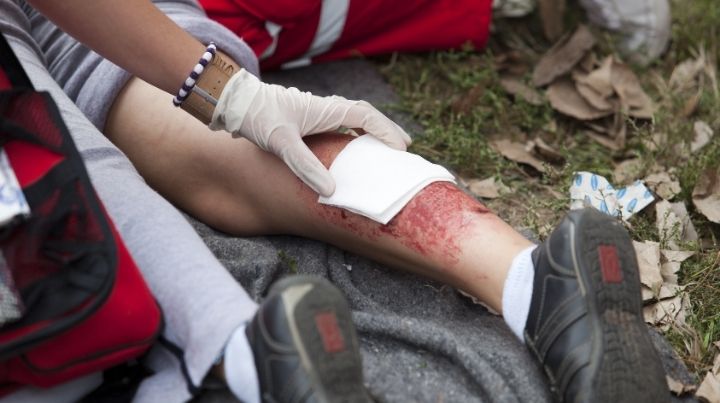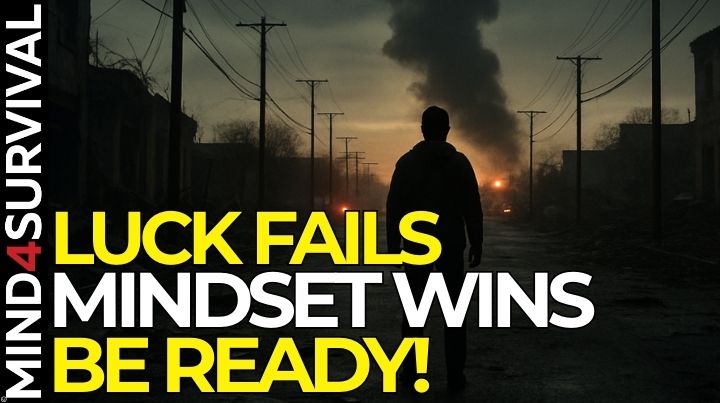Disaster medicine isn't just about first aid. It's about sanitation, disease control, long-term wound care to prevent infections, and caring for people with illnesses. Let's take a look at each of these important issues.
Quick Look at What You’ll Learn
Toggle
Major medical concerns during a crisis are sanitation and hygiene. If correct sanitation methods are not instituted, infections are more likely, as are sanitation-based illnesses. Both are far more likely to be deadly in a scenario without hospitals, doctors, and a pharmacy full of medications.
Personal hygiene is a good preventative. If people and areas aren't kept clean, people will get sick, which will reduce your ability to deal with other problems.
Disasters are dirty, but regardless of the situation, people must manage their hygiene and cleanliness. Make sure to clean up before going to sleep and throughout the day when possible.
If you're going to be dealing with ill or injured people, you need to scrub down first.
You need soap, water, and a clean towel.
Use the cleanest water possible. Filter out the nastiness and boil it beforehand.
Don't just wash your hands. Wash all the way up to your elbows.
The longer you scrub, the better you'll be.
Follow up with gel hand sanitizer.
Your restroom area is important.
Dig your latrine 100 meters or one terrain feature away from the area that people will cook or sleep. It should be 2 feet deep and 1.5 feet wide. Don't let it fill all the way up, and cover it up as you go. When one area is filled, move to another.
Insects are more than a pesky nuisance.
First of all, your body needs to be in a deep sleep to maximize healing time. With only interrupted and crummy sleep, you will not heal as fast. One key to getting essential sleep is keeping the bugs away.
As well, insects can carry a variety of diseases, depending on where you are. Here are some ways to reduce contact with insects/
If you have power, use fans – the airflow will keep mosquitoes and bugs from landing on you.
Encircle your sleeping area with mosquito netting
Use DEET
Keep as much of your skin as possible covered.
Tie off your pants. Use rubber bands, gaiters, or blouse your pants into your boots to keep the ticks and bugs from making contact with your skin.
Part of disaster medicine is taking care of people who become sick – and that includes YOU.
Don't be a tough guy. Be the smart guy so you stay healthy and can continue functioning. Listen to the people around you when you feel ill because they may be more aware of what is wrong with you than you are. Sometimes when we are ill or running a fever, we may not be able to assess ourselves accurately. When you're sick, take yourself out of the equation and focus on rest to heal up.
Quarantine people who become ill until you are certain their illness is not contagious. Use measures like gloves masks
Children and the elderly get sick more easily, as do people with chronic illnesses and compromised immune systems.
Have a plan to manage medications.
Always stock up on extra prescription medications. Have your medications safe and accessible. During some major incidents, prescriptions may not be available. Some are essential, such as insulin, heart medication, and anti-rejection medications. Make arrangements for any essential medications that have specific storage requirements, such as refrigeration.
You should also stock up on over-the-counter medications. Include these in your medkit:
When dealing with a wound, your goal is to prevent infection and help the wound heal.
Clean the wound well. Scrub the edges and get the dirt out.
When it comes time to close the wound, you need to consider several things before choosing your method.
Loads of emergency medicine courses teach suturing , showing students how to practice stitching someone up on a piece of meat. Suturing is done to minimize scarring. Wounds will heal from the inside out regardless of the closure method.
Remember that suturing requires a sterile environment, which is not that likely in the field. Suturing, in itself, creates additional wounds to the body. This creates further infection potential.
You might want to consider Dermabond superglue .Here are instructions on using super glue to close a wound .
There are levels of involvement with medical equipment and supplies . Each ascending level can hold more equipment and supplies.
What you carry on your person
What you carry in your backpack
What you carry in your vehicle
What you carry in your home
Keep your equipment and supplies subdued low profile, and be the gray man . Doing so will help prevent you from being a target. Keep your medical equipment accessible for emergency use. Carry a combination of trauma gear and everyday medications.
Another great idea is to set up medical cache points in locations where you're likely to need them.
Try to carry reputable equipment and supplies. You may find yourself in a situation in which you don't have ideal supplies. Use expired and lesser manufacturers' supplies with your best judgment during emergencies.
Use old, expired, or questionable supplies for training and retraining.
Find out about your health before anything bad happens. Get a thorough checkup and work with your doctor to improve your health. The healthier you are before a bad situation occurs, the better off you'll be during the catastrophe.
The thing to remember about disaster medicine is that it's improbable you'll be performing it under ideal, pristine circumstances. (If circumstances were ideal, you'd be at a nice clean hospital.) You should learn all you can about different kinds of illnesses and injuries, improve your medical kit, increase your skills, and then do the best you can with the situation you find yourself in.
Stay safe,









Will definitely prep more for sanitation issues. Thanks for a great podcast!
Michelle, I’m glad the podcast is helping you refocus some of your preparedness needs. Thanks so much for the time you took to give me some feedback. It’s comments like yours that make it all worthwhile. Please feel free to reach out anytime with comments, suggestions, or questions. Please stay safe, secure and prepared! All the best. ~Brian